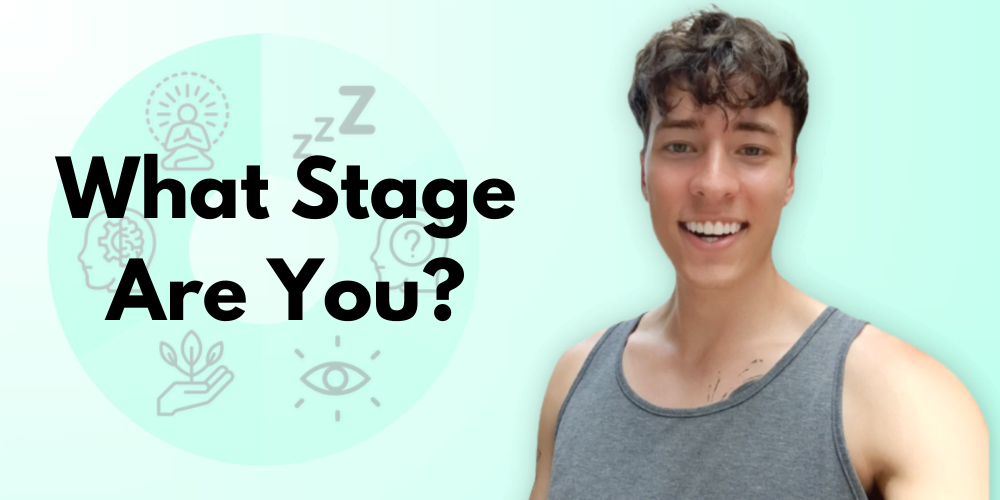Meditating While High: How to Use Marijuana With Meditation
Look, we’ve all been there. You took an edible, but you forgot you still need to get your 10 minutes of meditation in for the day. Now you’re wondering if meditating under the influence of some OG Kush is a bad idea or if it’ll enhance your meditation session. Although it’s totally up to personal preferences, there’s nothing wrong with meditating while high on cannabis. In fact, adding marijuana to your meditation session may actually enhance or deepen your meditative practice. However others claim meditating under the influence simply isn’t enjoyable or helpful at all for them. The benefits of meditating while high So now that you’ve gotten yourself into the sticky situation of being under the influence of cannabis, you’re wondering what the benefits of meditation are in this scenario. Here are a few benefits of meditating while high: 1. Cannabis enhances your senses After all marijuana is known for this sense enhancing quality. Things done while high may feel more pleasurable and intense and meditation is no exception. Marijuana can heighten your awareness and make sensations stand out much more than they usually would. When you get high you might find that your meditation senses are heightened and you feel more tuned into how your body feels. Often times when using cannabis you can feel your heartbeat more clearly, notice vibration sensations in and on your body, and feel your breath more fully. 2. Meditation can help with paranoia If you deal with paranoia or anxiety when under the influence, you may want to try meditation. Sometimes a high can be too intense and you need a method of calming yourself down. For my high friends that struggle with anxiety, you may want to add meditation to your smoke session. Meditation has long been known to lower cortisol levels and stress in the mind and body. A quick meditation may be just what you need to get you over the hump and start enjoying your high. 3. They synergize to relax your mind and body Continuing on that note, combining meditation with cannabis may create a deep relaxation effect. The combination of the two can create a synergistic affect multiplying the relaxation. Cannabis, THC, and CBD are notorious for relieving muscle tension and relaxing the body. When the body relaxes the mind follows suit. This can create a perfect environment and foundation for a deeply satisfying meditation session. If you’re using marijuana and meditation as a method to relax, combining them could definitely be what you should try. 4. Cannabis deepens your spiritual experience Some meditators claim that substances can induce intense spiritual states of consciousness, and it’s not just DMT, psilocybin, and psychedelics we’re talking about here. Marijuana can absolutely facilitate a spiritual experience. I personally have had several deep insights and profound spiritual experiences under the influence of cannabis. The mindset and state of consciousness that cannabis gives you could absolutely help you see a new deeper perspective. I know this to be true not only for me, but for other meditation practitioners as well. 5. Meditation can help if you get too high If you get too high you may want to give meditation a try. Being too high is the worst. Feeling disoriented, dizzy, and anxious after a particularly strong edible could potentially be mitigated with mindful practice. Mindful meditation can be a practice you can try if you lose touch with reality and get too high. Grounding yourself in the present moment with meditation can help you come back from the edge of a bad and overly strong marijuana high. Although this isn’t guaranteed to work, mindful breathing and present focus definitely couldn’t hurt in a situation like this. The cons of meditating high Don’t get me wrong, though meditating high has its benefits it definitely isn’t right for everyone. Here are a few downsides you might want to consider: 1. Easily distracted while high Being high might actually make it more difficult to focus during a meditation practice. It’s entirely possible that you get high and just completely forget to meditate in the first place. The increase in distractibility could hurt your focus and attention in mindful practice. I know that this tends to be something I experience in these states of consciousness. 2. Could be too intense Getting too high before a meditation session might make it nearly impossible to meditate at all. If you know what a strong THC experience is like, then you know that it would be hard to meditate in that state. If you can barely concentrate on walking from one room to another, how do you expect yourself to properly meditate? This is why I suggest you start very small if this is something you want to experience for yourself. 3. Brain fog the next day This is absolutely the biggest con for me. I hate having brain fog or foggy consciousness the next day after being high. In fact, I don’t use marijuana much at all anymore because of this. My awareness always feels blunted the day after a cannabis high. I struggle to be present and mindful the day after. So if you do decide to meditate on marijuana, just remember you may struggle to meditate or be mindful the next day. Brain fog is real and it happens all the time after being high. What meditation Practitioners have said But don’t take these claims from me, let’s hear it from people who have experienced high meditation themselves. Here are a few things that people have said about meditating under the influence of the ganja. One meditator that found high meditation beneficial claimed, “I’ve reached some great places meditating high, like deep states of meditation that brought insights which felt very valuable at the time, it’s easy for me to get into that state high.” Another reddit meditator found that high meditation was not right for them, “The practice of meditation is the work towards being completely present in life. Can a person
Meditating While High: How to Use Marijuana With Meditation Read More »





